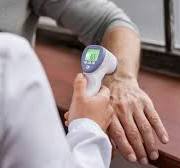Netherlands Diabetes Device Market Analysis: Trends, Drivers, and Future Outlook
Introduction: The Rise of Diabetes Device Market in the Netherlands
The Netherlands Diabetes Device Market a robust growth in its diabetes device market, projected to reach US$ 641.7 million by 2032, up from US$ 343.4 million in 2023. With a CAGR of 7.20% between 2024 and 2032, the market growth is being driven by factors such as increased diabetes prevalence, a tech-savvy aging population, government support, and rapid technological advancements in remote monitoring solutions. In a nation where 1.1 million people are diagnosed with diabetes (6.4% of the adult population), managing diabetes effectively has become paramount to reducing diabetes-related complications and improving the quality of life for patients.
Market Overview: Diabetes Prevalence and the Need for Advanced Devices
In 2021, diabetes affected 1.1 million adults in the Netherlands, with type 2 diabetes accounting for 90% of these cases. Every year, around 58,000 new cases are diagnosed. The growing prevalence, particularly among individuals aged 70-79, signals the urgent need for effective diabetes management solutions. Diabetes ranks among the top causes of mortality and illness in the Netherlands, contributing to over 12,000 deaths in 2019. As the disease continues to affect more individuals, demand for advanced diabetes devices, including continuous glucose monitors (CGMs) and insulin delivery systems, is escalating.
Growth Drivers for the Netherlands Diabetes Device Market
- Aging Population and Rising Diabetes Rates
- With an aging population more susceptible to type 2 diabetes, effective monitoring tools are crucial to managing the condition. Aging-related factors, such as reduced insulin sensitivity and sedentary lifestyles, contribute to the growing demand for diabetes devices. Advanced devices like insulin pumpsand continuous glucose monitoring systems support proactive diabetes management, allowing older individuals to manage their condition with ease and improved accuracy.
- Increased Demand for Remote Monitoring Solutions
- Remote monitoring systems are transforming diabetes care in the Netherlands. With telehealth on the rise, these solutions enhance patient access to healthcare providers without the need for in-person visits. Devices such as CGMsand mobile health applications offer real-time data, allowing patients to track and manage their glucose levels remotely. This shift toward virtual healthcare provides significant advantages for patients managing long-term conditions like diabetes, encouraging a more proactive approach to their health.
- Government Initiatives and Health Awareness
- The Dutch government actively promotes health awareness and diabetes management through various initiatives, such as public health campaignsand funding for healthcare technologies. By advocating for early diabetes detection and encouraging the use of advanced devices, the government supports both patient well-being and healthcare system sustainability. These initiatives create a favorable environment for the adoption of diabetes devices across the country.
- Technological Innovations in Diabetes Devices
- Advanced diabetes devices offer new levels of convenience and accuracy, transforming how patients manage their blood glucose levels. The availability of portable blood glucose meters, wearable insulin pumps, and customizable CGMsenables patients to monitor their health independently. Furthermore, technologies like AI and machine learning have improved device accuracy, enhancing patient outcomes and encouraging widespread device adoption in the Netherlands.
Types of Diabetes Devices in the Netherlands Market
- Self-Monitoring Devices
- Self-monitoring blood glucose devices are vital tools for managing diabetes. These devices allow users to measure their glucose levels at home, making timely and informed decisions about their diet, exercise, and medication. Such devices empower patients, especially those with type 1 diabetes who require frequent monitoring, enabling them to manage their condition efficiently.
- Continuous Glucose Monitoring (CGM) Devices
- CGMs are among the most advanced monitoring solutions available, providing real-time glucose data. Devices such as the Dexcom ONE+ allow patients to wear sensors on different parts of the body, tracking glucose levels continuously. This real-time data reduces the likelihood of complications, offering a preventive approach to managing diabetes. CGMs have been gaining popularity in the Netherlands, especially among those with type 1 diabetes and healthcare providers.
- Insulin Pumps
- Insulin pumps, small wearable devices that provide continuous insulin delivery, offer a more flexible and precise method of insulin administration compared to injections. These pumps have transformed diabetes care, particularly for individuals who require regular insulin doses. By eliminating the need for frequent injections, insulin pumps reduce the physical and emotional toll of diabetes management.
- Insulin Pens
- Insulin pens offer a convenient alternative for insulin administration, allowing patients to administer their doses accurately. Insulin pens come in various models, from pre-filled disposable pens to refillable pens. They are popular among individuals with both type 1 and type 2 diabetes, providing a discreet and easy-to-use insulin delivery method.
Key Market Segments and End-User Insights
End-User Segments
- Hospitals
- Hospitals remain one of the largest end-users of diabetes devices, especially for inpatient diabetes management and monitoring. Hospital-based CGMs, insulin pumps, and glucose meters aid in managing patients with diabetes who require intensive monitoring.
- Diagnostics Centers
- Diagnostic centers play a crucial role in diabetes detection and management, utilizing CGMs and blood glucose monitoring systems for routine testing. As diabetes prevalence rises, diagnostics centers are adopting advanced devices for early detection and effective patient management.
- Homecare
- Homecare is a growing segment as patients seek self-management options. With devices like CGMs and insulin pumps, patients can monitor their glucose levels, reducing the need for frequent doctor visits. The ease and convenience offered by homecare devices encourage patients to take proactive steps in managing their health.
- Bottom of Form
About the Company:
Renub Research is a Market Research and Information Analysis company with more than 14 years of experience in Research, Survey, and Consulting. Our research helps companies to take business decisions: on strategy, organization, operations, technology, mergers & acquisitions, etc. Till now we have published more than 7000 syndicated reports and worked on more than 500 custom research projects. Currently, we are supplying data to EMIS, Bloomberg, Thomson Reuters, etc. We support many blue-chip companies by providing them with findings and perspectives across a wide range of markets



